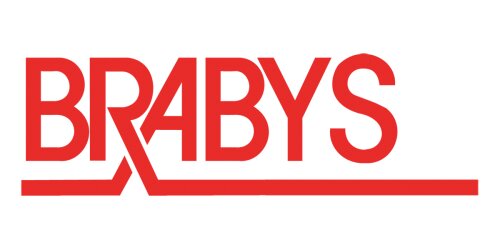Best Health insurance Lawyers in Durban
Share your needs with us, get contacted by law firms.
Free. Takes 2 min.
List of the best lawyers in Durban, South Africa
About Health Insurance Law in Durban, South Africa
Health insurance in Durban, South Africa, is an essential aspect of the country’s healthcare system, providing coverage for medical expenses incurred by the insured. Generally classified into private health insurance and government-initiated schemes, these insurance programs aim to make healthcare affordable and accessible. In Durban, like other parts of South Africa, health insurance laws and regulations are governed by national legislation, including the Medical Schemes Act and the National Health Insurance (NHI) policy, which is gradually being implemented. The provisions ensure consumers are protected, offering a framework within which insurers operate to provide fair and equitable services.
Why You May Need a Lawyer
Engaging a lawyer may become necessary in several situations regarding health insurance. Common reasons include disputes over denied claims, issues interpreting policy language, or if you believe that an insurer has acted in bad faith. A lawyer can also assist in navigating complex claims processes, appeals against adverse determinations, and reviewing the terms and conditions of a health insurance policy to ensure it meets your healthcare needs. Furthermore, in cases of alleged fraud or misrepresentation by either party, legal counsel becomes an invaluable resource for guidance and representation.
Local Laws Overview
Health insurance laws in Durban are primarily influenced by national legislation, including the Medical Schemes Act of 1998, which governs the operation of medical schemes. This legislation mandates open enrollment and community rating, ensuring non-discriminatory access to insurance products. The National Health Insurance (NHI) policy seeks to achieve universal health coverage, emphasizing the redistribution of healthcare resources. In Durban, the laws require insurers to operate with transparency, addressing issues like pricing, coverage scope, and claims processing efficiently.
Frequently Asked Questions
What is the National Health Insurance (NHI)?
The NHI is a South African government-led initiative aimed at achieving universal healthcare coverage. It seeks to pool funds for universal access to quality health services for all citizens, regardless of their economic status.
Are there mandatory health insurance requirements in Durban?
As of now, health insurance is not mandatory for all South African citizens. However, the NHI will create a mandatory universal system when fully implemented.
What should I do if my health insurance claim is denied?
If your health insurance claim is denied, read the denial letter carefully, gather relevant documentation, and consider appealing the decision. Consult a legal professional if necessary for guidance tailored to your circumstances.
Can I switch my health insurance provider at any time?
You can switch health insurance providers, but it's usually best to do so at the end of the coverage year or before the policy renewal. Ensure that you understand any waiting periods or penalties associated with switching.
What factors influence the cost of my health insurance premium?
Premium costs are influenced by a range of factors including age, health status, the extent of coverage, and the choice of insurer. South African regulations ensure that these premiums are based on community rating rather than risk-based pricing.
How does private health insurance differ from the public health system?
Private health insurance provides access to private healthcare facilities and practitioners, often with quicker service and a wider choice of providers, while the public system offers services at reduced costs, sometimes with longer wait times.
What does a typical health insurance policy cover?
A typical policy covers a range of health services including hospital stays, outpatient care, emergency services, and sometimes prescription drugs. The specifics can vary based on the policy and provider.
How are health insurance disputes resolved in Durban?
Disputes are typically resolved through negotiation, mediation, or legal proceedings. The Council for Medical Schemes provides a platform for grievances, where beneficiaries can lodge complaints.
What is the role of the Council for Medical Schemes?
The Council for Medical Schemes is a statutory body in South Africa that regulates medical schemes to ensure member protection and to support equitable access to private health insurance services.
Are there coverage waiting periods for new health insurance policies?
Yes, health insurance policies might have waiting periods, especially for pre-existing conditions, maternity benefits, or specific treatments. These vary per insurer and policy.
Additional Resources
Consider consulting the following resources for more information and assistance with health insurance issues in Durban:
- Council for Medical Schemes (CMS): Offers regulatory oversight and a complaints platform.
- Department of Health: Provides information on national health policy and the NHI.
- Local Consumer Protection Offices: For consumer complaints and advice on health insurance litigation.
- Legal Aid South Africa: Provides legal support to those unable to afford private legal services.
Next Steps
If you require legal assistance with health insurance issues, begin by gathering all relevant documentation, such as policy details and correspondence with your insurer. Research and consult with a lawyer who specializes in health insurance law in South Africa, ensuring they have experience with the specific issues you’re facing. For initial free advice, consider visiting legal clinics or consulting consumer protection agencies. Should you choose to pursue litigation, your attorney will guide you through the appropriate legal processes.
Lawzana helps you find the best lawyers and law firms in Durban through a curated and pre-screened list of qualified legal professionals. Our platform offers rankings and detailed profiles of attorneys and law firms, allowing you to compare based on practice areas, including Health insurance, experience, and client feedback.
Each profile includes a description of the firm's areas of practice, client reviews, team members and partners, year of establishment, spoken languages, office locations, contact information, social media presence, and any published articles or resources. Most firms on our platform speak English and are experienced in both local and international legal matters.
Get a quote from top-rated law firms in Durban, South Africa — quickly, securely, and without unnecessary hassle.
Disclaimer:
The information provided on this page is for general informational purposes only and does not constitute legal advice. While we strive to ensure the accuracy and relevance of the content, legal information may change over time, and interpretations of the law can vary. You should always consult with a qualified legal professional for advice specific to your situation.
We disclaim all liability for actions taken or not taken based on the content of this page. If you believe any information is incorrect or outdated, please contact us, and we will review and update it where appropriate.











